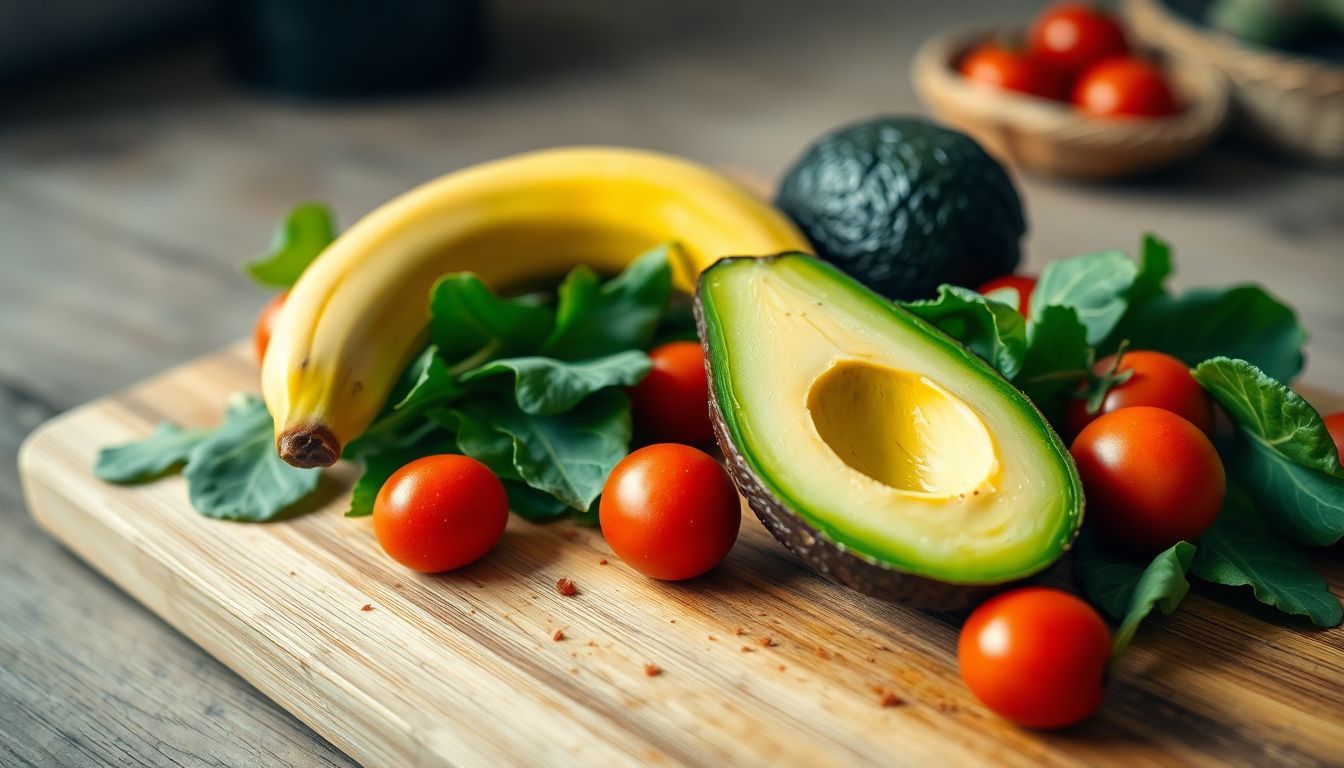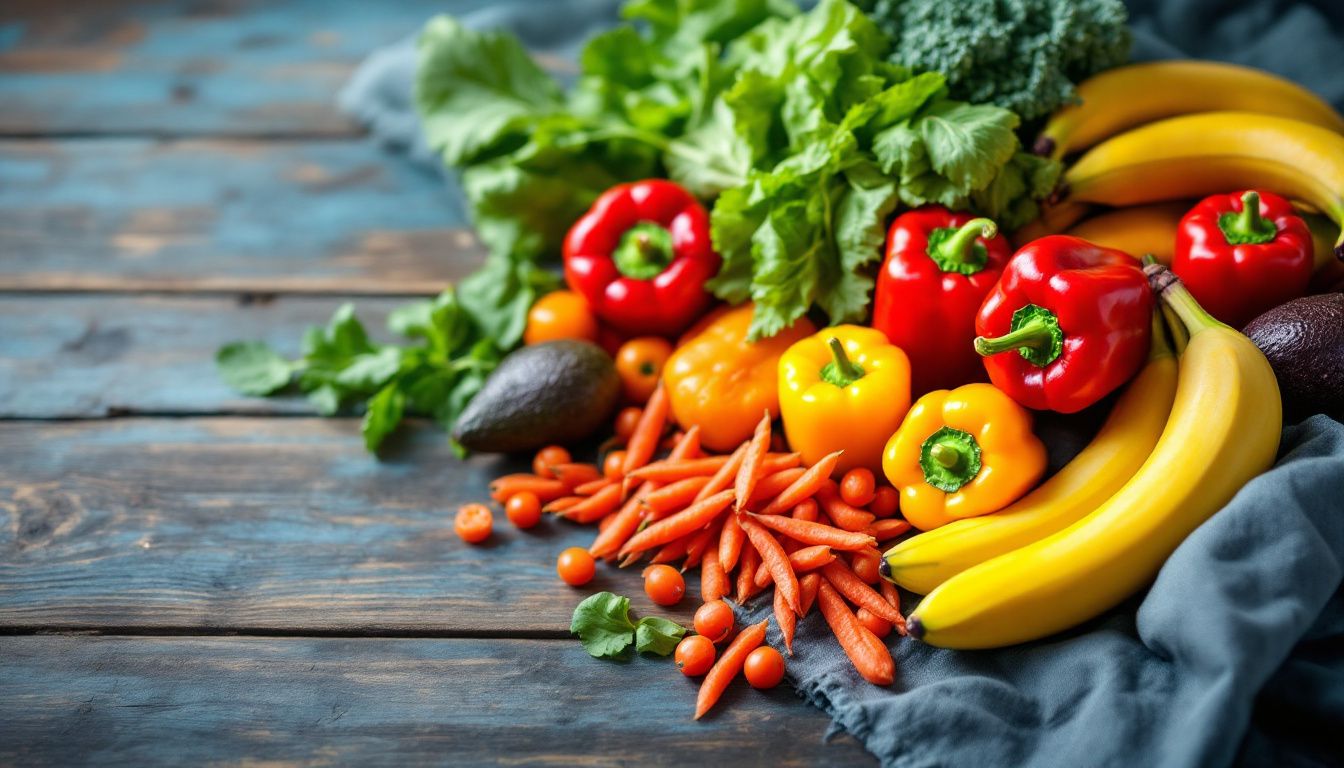Do you often feel tired or moody for no clear reason? Vitamin B6, also called pyridoxine, might be missing in your diet. This vitamin helps with brain health, immune strength, and red blood cell production.
Thank you for reading this post, don't forget to subscribe!Keep reading to learn how this vital nutrient supports your body—and where to find it!
Key Takeaways
- Vitamin B6 supports brain health, red blood cell production, and the immune system. It also helps produce neurotransmitters like serotonin and dopamine for mood regulation.
- A deficiency in Vitamin B6 can cause anemia, depression, weak immunity, memory problems, or irritability. Low levels disrupt hemoglobin and white blood cell production.
- Foods high in Vitamin B6 include chicken (0.5 mg per 3 ounces), tuna (1 mg per 3 ounces), potatoes (0.4 mg each with skin), chickpeas (1 mg per cup), bananas (0.4 mg each), and fortified cereals (up to 2 mg per serving).
- Adults need about 1.3 mg of Vitamin B6 daily to stay healthy. Pregnant women may need more—consult a doctor for proper dosage advice.
- Eating a balanced diet with foods like poultry, fish, bananas, and chickpeas ensures good brain function, oxygen transport through red cells, and strong immunity!
Importance of Vitamin B6 in Maintaining Health
Vitamin B6 helps your body work in many ways. It supports brain health, blood production, and the immune system.
Role in protein metabolism, cognitive development, and neurotransmitter production
The body needs Vitamin B6 to break down proteins into amino acids. These amino acids build and repair tissues, making protein metabolism efficient. It also supports brain health by aiding cognitive development during growth stages.
This is essential for children and teens.
This vitamin helps produce neurotransmitters like serotonin and dopamine. These chemicals regulate mood, focus, and sleep. Without enough B6, the nervous system may not function properly, leading to issues like memory problems or irritability.
“Vitamin B6 plays a key role in brain function by assisting in neurotransmitter production.”
Formation of hemoglobin for oxygen transport
Vitamin B6 helps your body make hemoglobin. Hemoglobin is a protein in red blood cells that carries oxygen to tissues and organs. Without enough of it, your body struggles to get the oxygen it needs.
Low levels of vitamin B6 can cause microcytic anemia. This condition makes your red blood cells smaller and less effective at carrying oxygen. Adding foods rich in vitamin B6, like fortified cereals or starchy vegetables, supports healthy red blood cell production.
Association with immune function and hormone regulation
This nutrient boosts the immune system by helping create white blood cells. These cells fight off infections and keep your body strong. It also supports hormone regulation, which can affect mood, energy, and overall balance.
B6 plays a role in easing PMS symptoms like mood swings or cramps. It’s also linked to reducing nausea during pregnancy. A diet rich in food sources of vitamin B6—like bananas or fortified cereals—can support these functions naturally.

Consequences of Vitamin B6 Deficiency
Low Vitamin B6 can lead to serious health problems. It affects how your body makes red blood cells and supports brain function.
Anemia, depression, weakened immune response
Vitamin B6 plays an important part in your health. Its deficiency can cause serious issues like anemia, depression, and a weak immune system.
- Anemia occurs when you don’t produce enough red blood cells. Without Vitamin B6, hemoglobin production slows down—leading to low oxygen levels in your body.
- Depression may result from disrupted neurotransmitter production. This vitamin helps make serotonin and dopamine, which affect mood and mental health.
- A weakened immune system makes it harder for the body to fight infections. Lack of Vitamin B6 lowers white blood cell activity, reducing your defense against diseases.
Dietary Sources of Vitamin B6
Your daily meals can easily provide Vitamin B6 if you pick the right foods. Eating a mix of plant-based and animal-based options gives your body what it needs for better health.
Poultry, fish, potatoes, chickpeas, bananas, fortified cereals
Vitamin B6 helps your body in many ways. Foods rich in this vitamin make it easy to meet your daily needs.
- Poultry, such as chicken and turkey, is a top source of Vitamin B6. A 3-ounce serving of cooked chicken breast provides about 0.5 mg.
- Fish like salmon and tuna are excellent sources too. Tuna contains around 1 mg per 3 ounces, making it a strong choice for boosting intake.
- Potatoes are healthy starchy vegetables packed with this nutrient. One medium potato gives nearly 0.4 mg when baked with its skin on.
- Chickpeas offer plant-based benefits full of protein and Vitamin B6 at the same time. One cup contains about 1 mg of the vitamin, perfect for vegetarians or vegans.
- Bananas bring convenience and nutrition in one package—a single medium banana offers about 0.4 mg of Vitamin B6.
- Fortified cereals provide an easy way to start your day right. Many brands add extra Vitamin B6 to cereals, often giving up to 2 mg per serving.
Eating these foods regularly ensures you hit the recommended daily intake… Next, let’s explore how much Vitamin B6 you need for good health!
Recommended Daily Intake of Vitamin B6
Most adults need about 1.3 mg of Vitamin B6 daily—read on to know how to meet this goal and boost your health!
Adults typically require about 1.3 mg per day
Adults need 1.3 mg of Vitamin B6 daily to stay healthy. This water-soluble vitamin supports protein metabolism and helps the nervous system function properly. It assists in brain development and can reduce cognitive decline as you age.
Eating fortified cereals, starchy vegetables like potatoes, or non-citrus fruits such as bananas can help meet this goal. Pregnant women may require a slightly higher dose to prevent morning sickness or support fetal brain health—talk to a doctor for guidance on dosage needs.
Conclusion
Eating enough Vitamin B6 can improve your overall health. This nutrient supports your brain, blood, and immune system. Foods like chicken, bananas, and chickpeas are great options.
Aim for 1.3 mg daily to stay healthy. A balanced diet is the key to avoiding problems from a lack of this vitamin!
